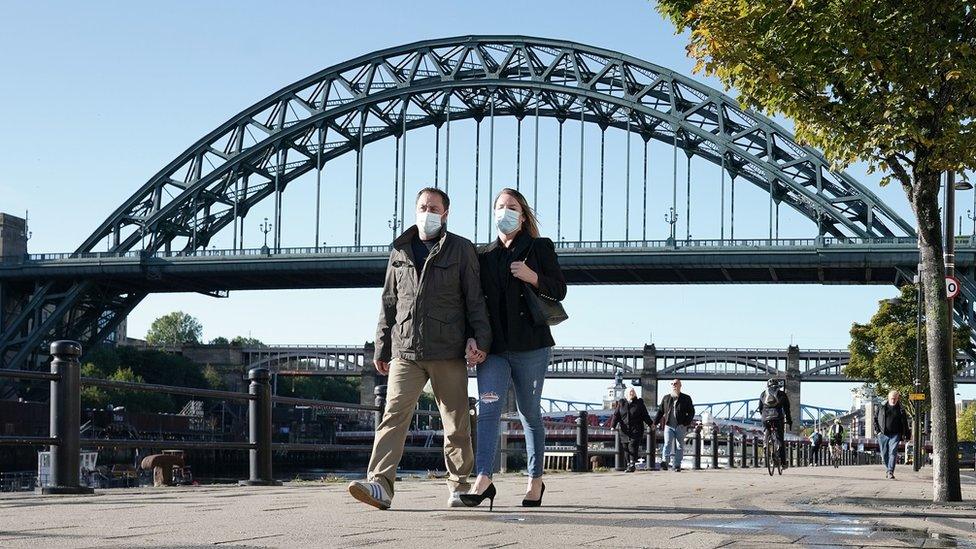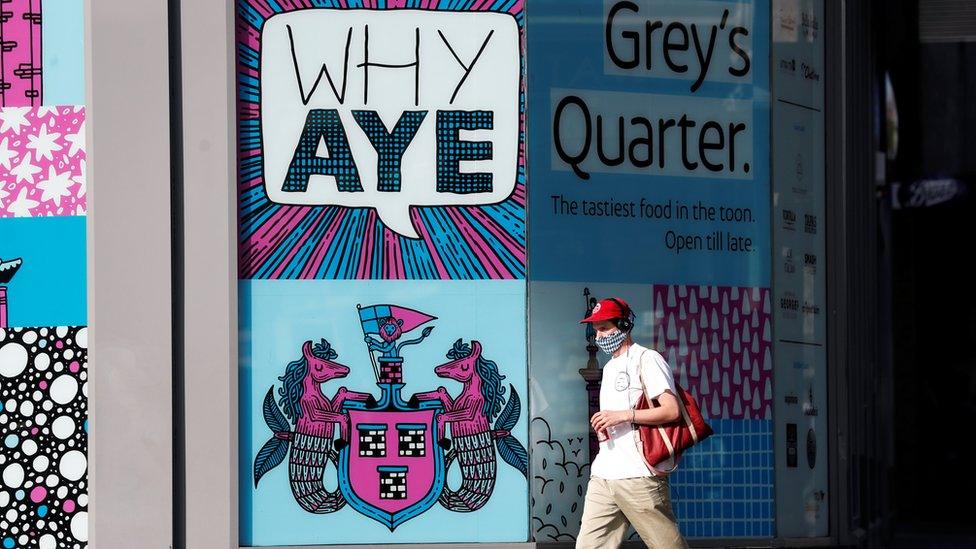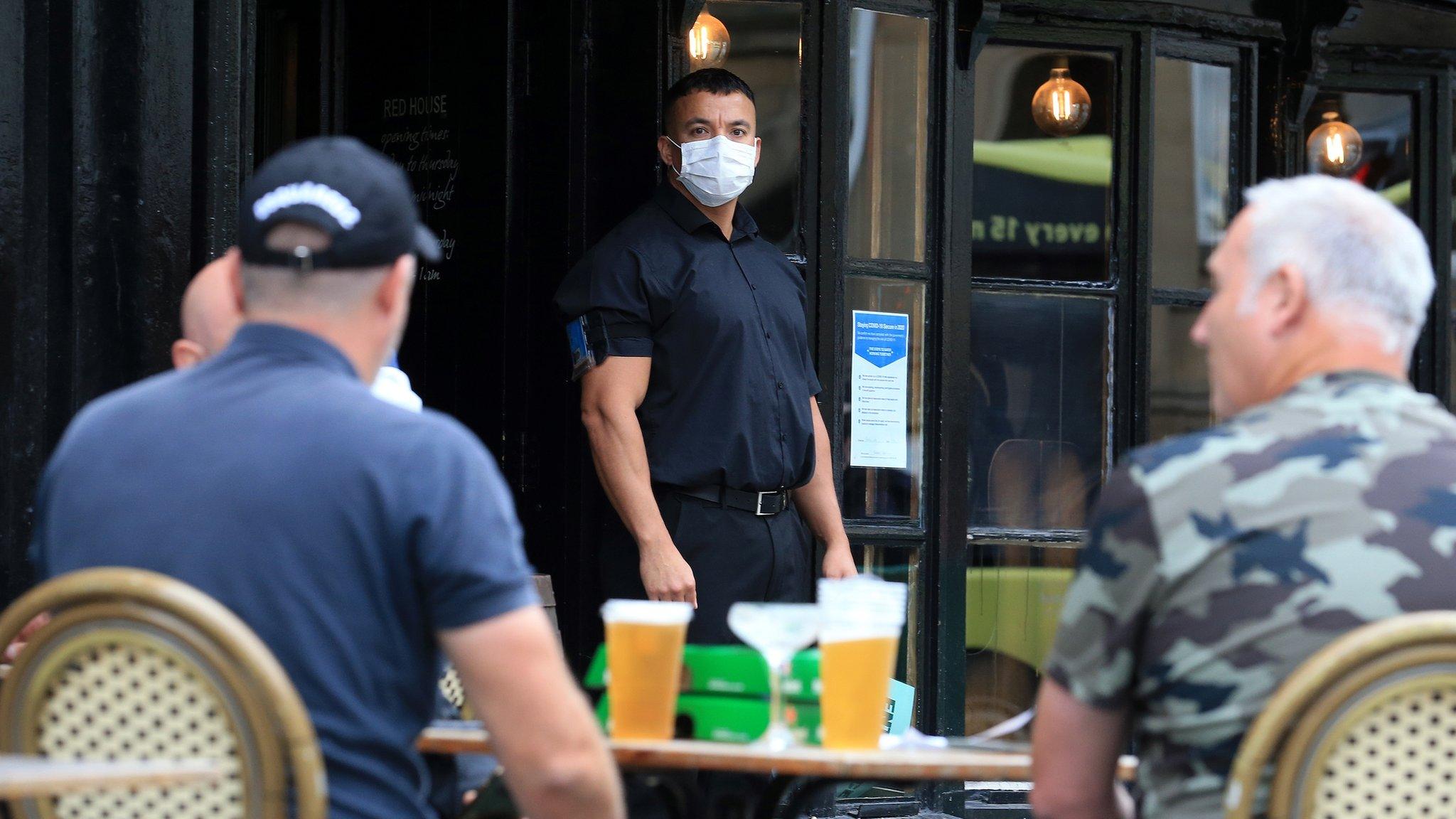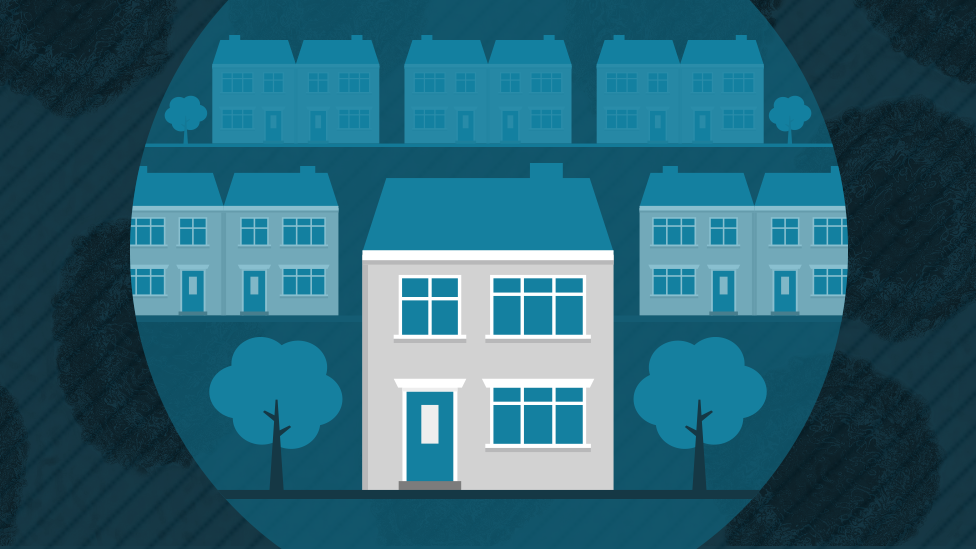Covid-19: North East 'very high alert' Tier 3 talks 'paused'
- Published

Rates have, on average, dropped across the North East with Newcastle seeing the steepest decline
Talks between council leaders and the government about moving the North East region into Tier 3 - or "very high alert" - coronavirus restrictions have been "paused", the BBC has been told.
Twelve council areas on Tyneside and Teesside are in "high alert" Tier 2.
Covid-19 infection rates have largely been falling in the area over the past week.
Council leaders had called on the government to "look at local evidence" before raising the restriction level.
The local authority areas of Newcastle, South Tyneside, North Tyneside, Gateshead, Sunderland, County Durham, Northumberland, Middlesbrough, Hartlepool, Darlington, Stockton and Redcar are all currently under Tier 2 restrictions.
Cases in the Tees Valley have increased from 278.4 per 100,000 people to 314.1 in the week up to 16 October.
However, across the North East the rate was down to 276.1 per 100,000 from 316.6 the previous week.
Newcastle had seen the sharpest decline, from 532 to 334.5, and rates also dropped in Gateshead, North Tyneside, South Tyneside and Northumberland.
Rates increased in Sunderland and the County Durham council area.

LOCKDOWN LOOK-UP: The rules in your area
THREE TIERS: How will the system work?
SOCIAL DISTANCING: Can I give my friends a hug?
PAY-PACKET SUPPORT: What will I be paid under the new scheme?
SOCIAL LIFE: The rules when I go to the pub?

In a joint statement, North East council leaders urged the government not to force the region into Tier 3, the Local Democracy Reporting Service said.
"Once again, the collective efforts of the North East have seen indications that the rate of Covid infections is slowing down," they said.
Newcastle's director of public health Prof Eugene Milne said major coronavirus outbreaks at the city's universities had been "contained very effectively", with daily cases down from about 330 each day to about 70.
A "visible number" of students had caused concern by not self-isolating but a "large number" had complied with the regulations, Prof Milne said.
Health Secretary Matt Hancock told the House of Commons on Tuesday that there were "early signs that the number of cases in the North East is starting to flatten".
"So we will keep a very close eye on the situation but we have no imminent plans to make a change," he said.

Follow BBC North East & Cumbria on Twitter, external, Facebook, external and Instagram, external. Send your story ideas to northeastandcumbria@bbc.co.uk, external.
- Published16 October 2020

- Published13 October 2020

- Published26 January 2022
